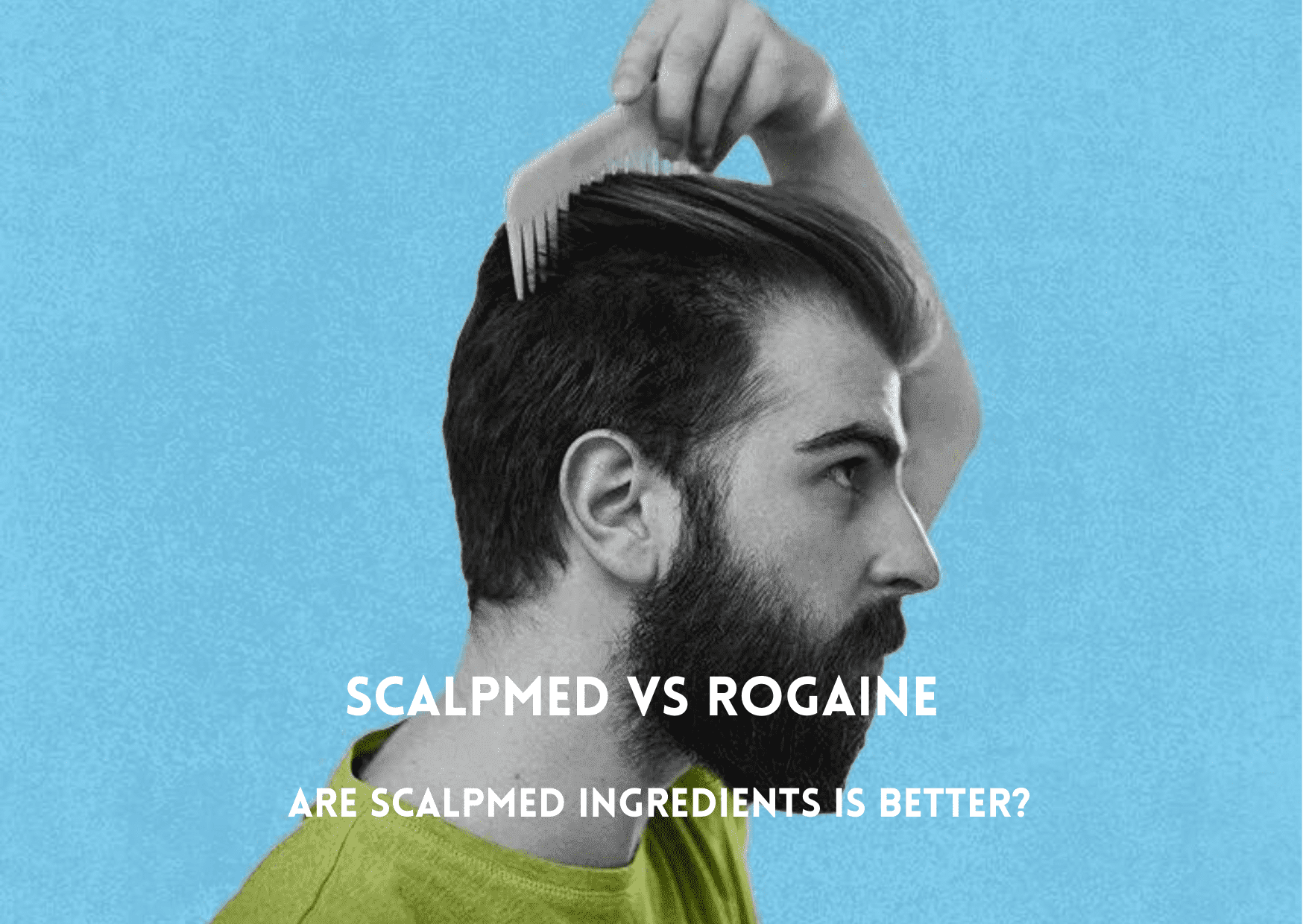
ScalpMed vs Rogaine, are both popular treatments for hair loss, but they work in different ways. ScalpMed uses a multi-step system which includes a topical minoxidil treatment, a scalp exfoliating shampoo, and a vitamin supplement. It also contains other ingredients like saw palmetto and tea tree oil which are claimed to improve scalp health and reduce inflammation. Rogaine, on the other hand, is the brand name for minoxidil applied directly to the scalp which works by increasing blood flow to the hair follicles. Generally speaking, both ScalpMed and Rogaine have been proven effective in clinical studies, but individual results may vary and they must be used consistently for months to see results. Ultimately, the best choice between them is up to you – consult with your healthcare professional or dermatologist to determine what’s right for your unique hair loss concerns.
ScalpMed Ingredients
The ingredients in ScalpMed vary depending on which product or treatment plan you choose, but all ScalpMed products contain minoxidil – an FDA-approved ingredient that’s clinically proven to help regrow hair. Other ingredients may include- Saw Palmetto (thought to block DHT production),
- Tea Tree Oil (with antifungal and anti-inflammatory properties that promote scalp health),
- Biotin (essential for hair growth),
- Panthenol (also known as vitamin B5, which strengthens and improves elasticity of the hair) and
- Niacin (which improves blood circulation to the scalp).
Does ScalpMed Work?
ScalpMed is an FDA-approved treatment for hair loss that contains minoxidil, which has been clinically proven to help regrow hair. However, its effectiveness may vary depending on the individual and how consistently they use it. Minoxidil is especially useful in treating androgenetic alopecia (male or female pattern baldness), the most common type of hair loss, as it works by increasing blood flow to the follicles. Additionally, ScalpMed contains other ingredients like saw palmetto and tea tree oil that can help improve scalp health and reduce inflammation.The reviews for ScalpMed are mixed – while some users have reported positive results with their hair regrowth and scalp health, others have not seen any noticeable changes. It’s important to bear in mind that individual results will vary, and you’ll likely need to use ScalpMed consistently for several months to experience the full benefits.
If you are considering using ScalpMed or any other kind of treatment for your hair loss, it’s best to speak with a healthcare professional or dermatologist first to determine the best course of action.
ScalpMed Reviews
Users have given ScalpMed mixed reviews. Some users say that the treatment has helped their hair grow back and improved their scalp health, while others say it hasn’t helped much or caused side effects like itching or irritation.ScalpMed has received both positive and negative feedback in the following ways:
Positive feedback:
- “After using ScalpMed for a few months, I am pleased to report that my hair is definitely growing back! Additionally, my scalp is healthier.
- “I had serious misgivings about ScalpMed from the beginning, yet I checked it out and I’m happy I did. My hair is thicker and more full now than it has been in years.”
- “ScalpMed has revolutionized my life. I am confident that my thinning hair will continue to improve, and I no longer feel self-conscious about it.”
Negative feedback:
- “After using ScalpMed as directed for a number of months, my hair did not change in any way. I thought the money was a waste.”
- “After using ScalpMed, I had terrible itching and irritation on my scalp. I needed to quit utilizing it on the grounds that the distress was an excessive amount to deal with.”
- “The shampoo and conditioner smelled bad to me, and ScalpMed didn’t work for me.”
It is essential to keep in mind that individual outcomes may vary, and ScalpMed must be utilized consistently for several months before results can be observed. If you want to use ScalpMed or any other treatment for hair loss, you should talk to a doctor or dermatologist about the best course of action for your particular hair loss issues.
ScalpMed Side Effects
ScalpMed, like many medications and treatments for hair loss, can cause side effects in some people. Common side effects of ScalpMed may include- scalp irritation or itching,
- dry or flaky scalp,
- redness or rash on the scalp,
- dizziness or lightheadedness,
- chest pain or rapid heartbeat and
- unwanted facial or body hair growth.
ScalpMed Lawsuit
ScalpMed has been the subject of several lawsuits in the past, with the claims made that the company made false or misleading claims regarding its products. Particularly, ScalpMed has been accused in some lawsuits of failing to adequately disclose potential side effects and misrepresenting the efficacy of its products.The Federal Trade Commission (FTC) alleged that ScalpMed engaged in deceptive advertising practices and made misleading claims about its hair growth products in a notable 2015 lawsuit. ScalpMed was accused in the lawsuit of fabricating claims that its products were clinically proven to regrow hair and using doctored before-and-after photos to exaggerate the results.
ScalpMed agreed to pay $5.2 million in refunds to customers who purchased its products as a result of the lawsuit and to modify its marketing strategies to be more honest and open.
It is essential to keep in mind that the filing of a lawsuit or other legal action against a business does not necessarily imply that a product is unsafe or ineffective. However, if you want to use ScalpMed or any other treatment for hair loss, you should do your homework and talk to a doctor or dermatologist about the best course of action for your particular hair loss issues.